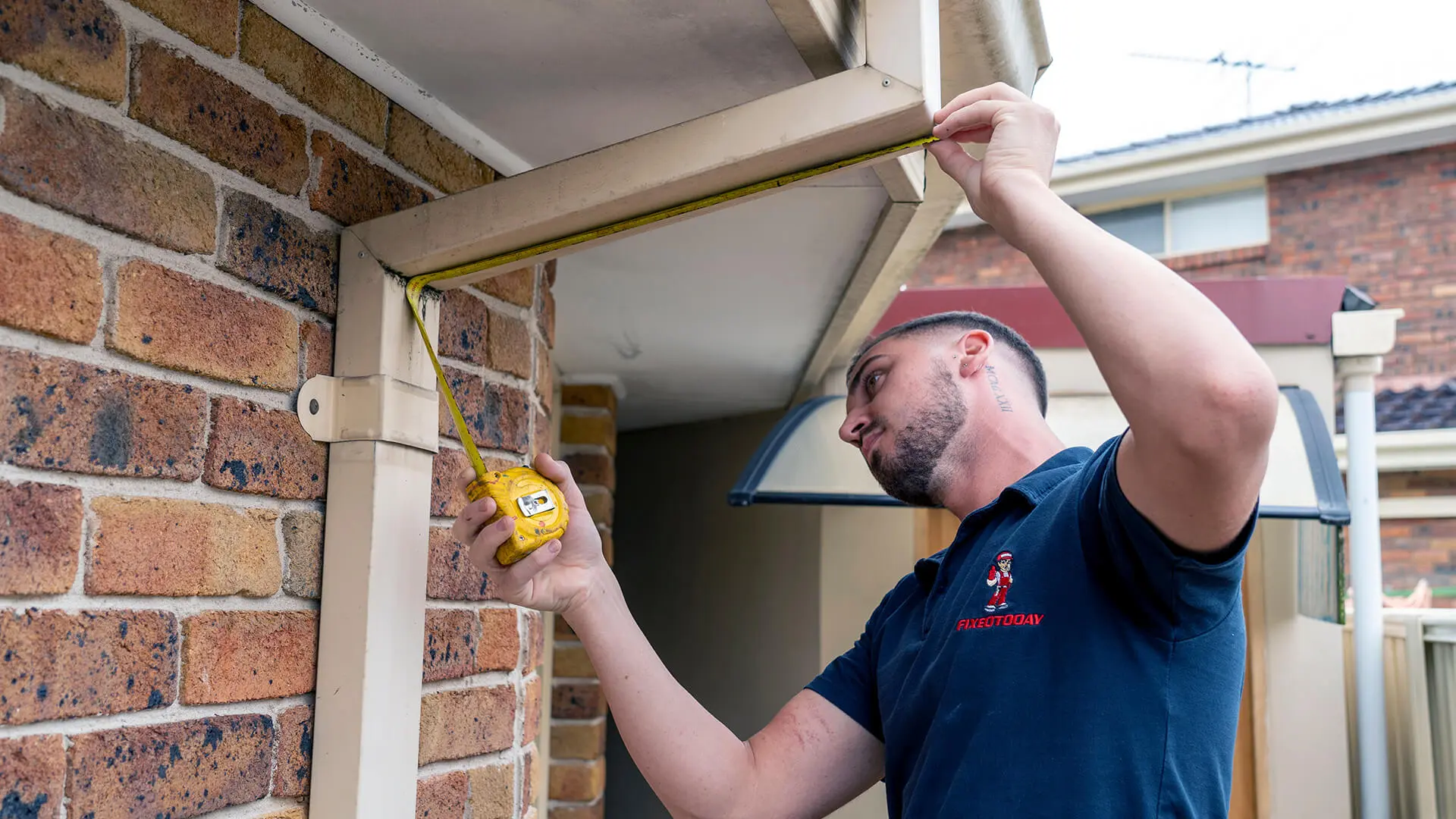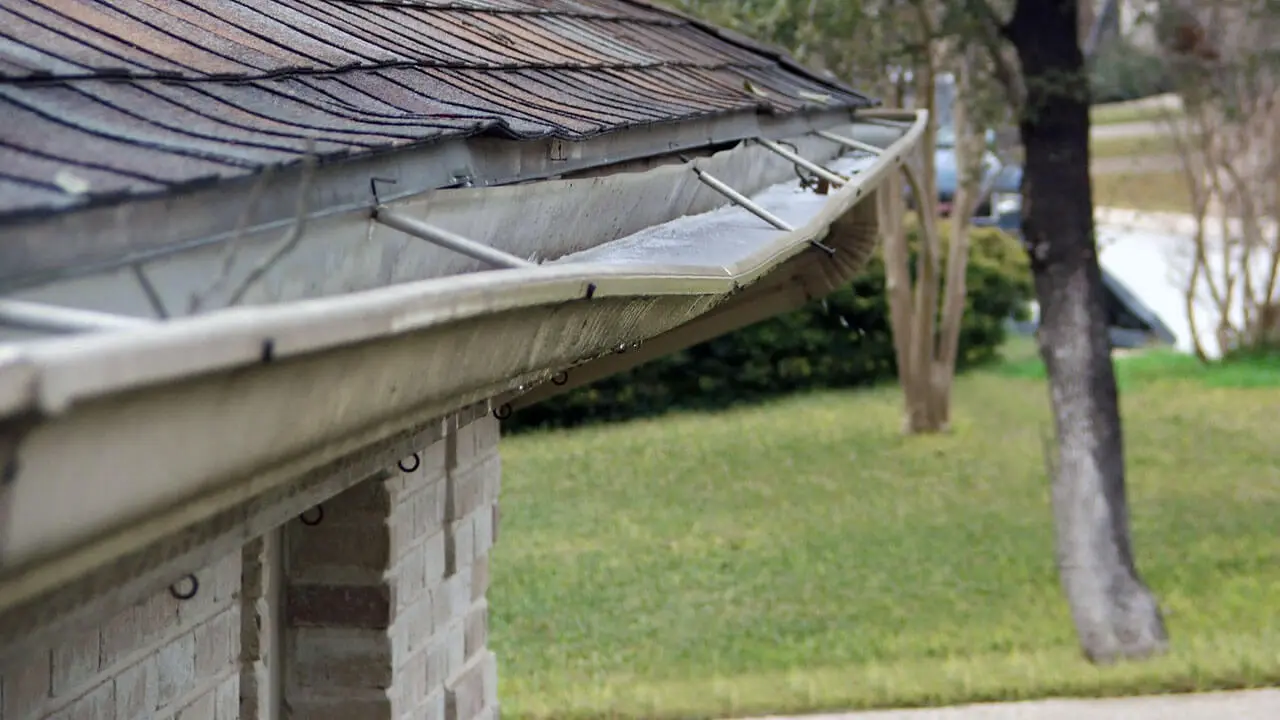Gutter leaks are a widespread occurrence. However, leaking gutters can be a severe problem if you do not find the root cause and fix them immediately. So, request a gutter leak repair from your trusted local plumber.
Over time, gutters can show their age with rust, wear, and small cracks. These tiny holes tend to appear where sections join, especially at the roof’s edges. This can potentially harm your windows, doors, and external walls. Still, the good news is that with routine checks and some simple upkeep, you can often catch and fix these minor leaks before they need professional intervention.
Regular cleaning and straightforward DIY fixes can save you from expensive gutter repairs. Just ensure you have the right tools, like a sturdy ladder, ready to tackle any gutter leaks.
In this read, we have listed the common reasons that can cause leaking gutters and then discussed how to fix problems in your gutter or prevent clogs. Rest assured that the techniques for your leaking gutters are not very difficult, and you can easily do them independently to protect your property from water damage.
How To Fix Gutter Leaks?
Before addressing any leaks, make sure to give your gutters a thorough clean with a scrubber and water. A wire brush or a broom handle can help remove all the leaves and debris. Keep these tools close by for when you’re ready to fix those leaks.

1. Leaking Joints
Joints are one of the significant areas where a leak can occur; hence, this is the first issue we will discuss.
If you see water dripping from one section, for instance, where the pipes meet, it could be because of a hole or a gap. Check the place carefully and see if you can spot the leakage. If you cannot, try pouring water over it to spot the leak’s origin.
After pinpointing the leak, a quick fix with quality sealant should do the trick. Remove the old sealant and apply the new one, ensuring it’s snugly fitted and your gutters sit evenly without tilting.
You can use plastic roofing cement to fill small holes. But if the holes are significant, you must use strips that match your leaking roof material and place them in the required areas. Then, use roofing cement or silicone sealant to seal them, and that should be it.
But if the sealant does not work on your leaking gutters or if you see that the pipes are ancient, you might have to replace one or more pipes. In that case, we recommend seeking professional help to fix leaking gutters.
2. Leaks Due To Loose Fasteners
The next probable cause of leakage is a loose fastener, which can cause the water to drain out. We mean the screws used to fix the fascia boards to the gutter by fasteners. These are prone to become loose if the gutter is old. And in this case, the water might leak from the end of the channels.
You can try tightening the screws and see if it works if this happens. Besides, the fascia boards could have become rotten or damaged, and you might have to change them to fix leaking gutters. Similarly, the screws might have rusted, and you would need to replace them. If there is a gap between the fasteners, you can use sealants to cover the portion and prevent leakage.
3. Sagging Gutters
Gutters could become prone to sagging during constant rainfall. Although they are generally designed to keep a slight slope for the water to flow, the weight of excess water could cause them to bend.
Sagging could also occur due to loose fasteners, and in both cases, you will have to realign the gutter. Lift it and keep a slight slope before fixing the fasteners again. You can do it yourself or ask a friend to help fix leaking gutters, as it is primarily a two-person job.
Once the gutter is in place, clean it well and remove any extra debris or leaves that might have stuck underneath. You can replace the fastener and add roofing cement to seal it tightly to prevent leaks.

4. Clogged Gutters
Clogging can occur anytime and is one of the top reasons for gutter leakage. Leaves, branches, dirt, and other debris can pile up on or underneath the gutter to clog it entirely. This prevents the water from leaving; hence, it might start leaking from the sides or top.
Dealing with a clogged gutter? No worries—just sweep out the debris thoroughly. If you’re facing a clogged downspout, try using a leaf blower. It’s often a simple fix that prevents future leaks.
You might also have to remove some screws and disassemble some sections cleaning the area. Remember to install a leaf guard on top to prevent a leaking gutter from happening again.
5. Severe Damages Due To Bad Weather
Bad weather conditions such as storms, snow, or heavy rainfall can leak gutters and cause severe damage. It is best to always check the gutter well after every shower to eliminate the leaves and dirt that might have accumulated. This will help prevent a clog or leak right from the get-go.
Otherwise, the gutter could have numerous tiny holes if you have not maintained it properly. Too much rain or a storm could further worsen the damage, and you must clean the gutter thoroughly before applying a sealant on top.
Tips To Reduce Gutter Leakage
We always recommend checking gutters once every few months to spot any leaks or damage that might have occurred. If you find them, immediately fix them with sealant, roofing cement, or strips compatible with the existing roofing material. We recommend occasionally checking the downspouts to see if the water moves freely.
Also, while working on gutters, take proper safety precautions and wear safety gear. You will probably have to climb ladders, so you should be prepared. If you are not confident, ask a friend or a neighbour to help you.
Repairing Your Leaking Gutter
It is always a good idea to learn how to fix gutter leakage. Knowing the preventive measures that must be taken, you can quickly minimise the risk of significant drainage problems. As discussed, occasional maintenance will help prevent leaks after any heavy storm or rain.
Consider opting for copper when installing gutters. It’s sturdy and withstands harsh weather well. Spending a bit more on quality can save you headaches down the track, given how much gutters endure outside.
If you need gutter repair, don’t hesitate to contact one of our skilled plumbers. Aside from gutter repair, we also provide other top-notch plumbing services. So, contact us now.
We have reached the end of this guide and will soon be back with more informative reads. Please let us know in the comments section below if you wish to add something.
Until then, take care and goodbye!














